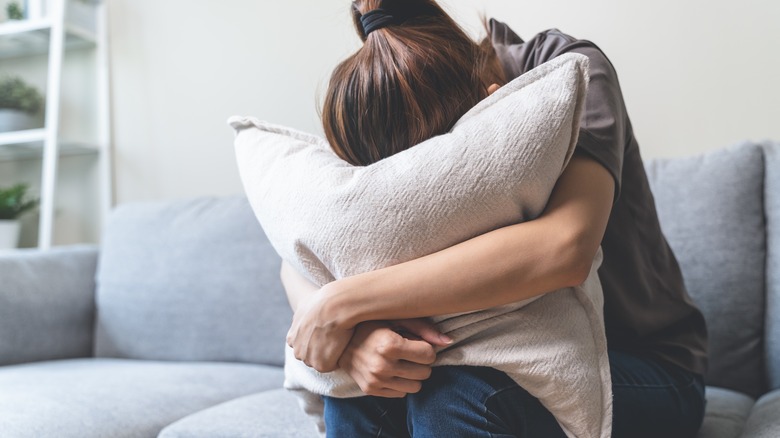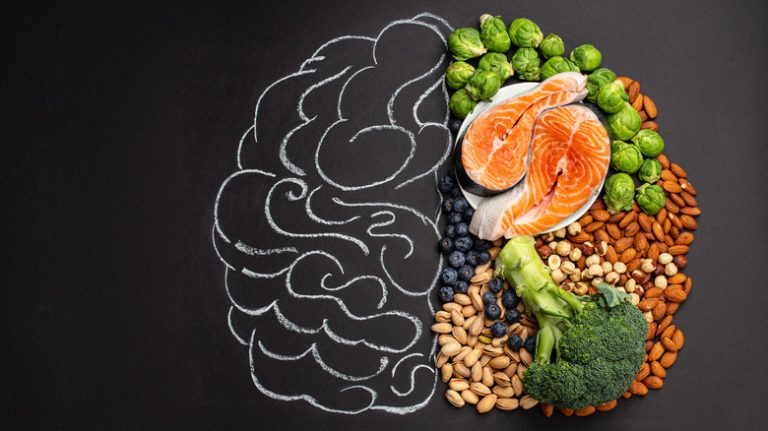According to the University of California at San Francisco, chest pain is one of the most common reasons for visits to the emergency room. The condition can be caused by a number of different factors, including anxiety and panic attacks (via Medical News Today). A 2024 survey published in Mental Disorders Around the World found that panic attacks impact nearly 30% of people in the United States, and chest pains tend to be a byproduct of these attacks.
A 2024 study published in the American Journal of Cardiology revealed that, in nearly 40% of cases of chest pain, anxiety was the reason. Healthline notes that anxiety-related chest pain can vary from person to person, with the pain being sudden for some and coming on gradually for others. In general, though, the main symptoms to be on the lookout for include sharp, shooting pain, unusual muscle spasms, and tension or tightness in the chest.
Although anxiety can cause chest pain, it’s important to note that there can be other, more serious, causes, including a heart attack (via the Woodlands Heart & Vascular Institute). It’s important to know what signs to look for when you’re having chest pain to ensure that you’re not potentially facing a crisis.
Anxiety can hit your body hard

Chest pain stemming from anxiety is caused by adrenaline and cortisol flooding through your body, causing your heart rate and blood pressure to rise (via the Woodlands Heart & Vascular Institute). According to K Health, chest pain can also be caused by your body’s natural “fight or flight” response to stress. These responses can include muscle tension, hyperventilation, and heart palpitations.
Because of the association we have between chest pains and heart attacks, K Health notes that it can be natural to assume that having chest pain immediately means that a heart attack is imminent or in progress. However, according to a 2024 article published in American Family Physician, only 2% to 4% percent of patients who complain of chest pain actually have a heart issue.
According to the Woodlands Heart and Vascular institute, one of the key things to look for in determining the cause of your chest pain is to figure out where the pain is located, as well as the patterns it forms. Pain from anxiety will stay localized in your chest, while heart attack pain can radiate to your shoulders, arms, and even your jaw. Heart attack pain tends to increase over time, whereas anxiety pain will begin to dissipate within 10 minutes or so. Additionally, if your chest pain increases the more you exert yourself, if you feel short of breath, or have nausea in addition to your chest pain, you could be having a heart-related issue (via Healthline).
You should always get treatment for chest pains

Whether your chest pain is related to anxiety or something more emergent, it’s always advisable to see your doctor and seek treatment whenever you are feeling chest pain (via Medical News Today). Going forward, according to Healthline, you can try to manage your anxiety through deep breathing, taking care of yourself physically, and using apps for anxiety and relaxation.
If your symptoms persist, you can also try therapy or medication to try and manage your anxiety better, according to PsychCentral. A 2024 study published in Current Psychiatry Reports showed that cognitive behavioral therapy can be very helpful in controlling anxiety symptoms.
Chest pain, whatever the cause, is not something to be taken lightly or overlooked, Healthline says. If your anxiety is manifesting itself with physical symptoms, make sure you see a medical professional right away to help get those symptoms under control and to rule out anything that could be potentially life-threatening.



